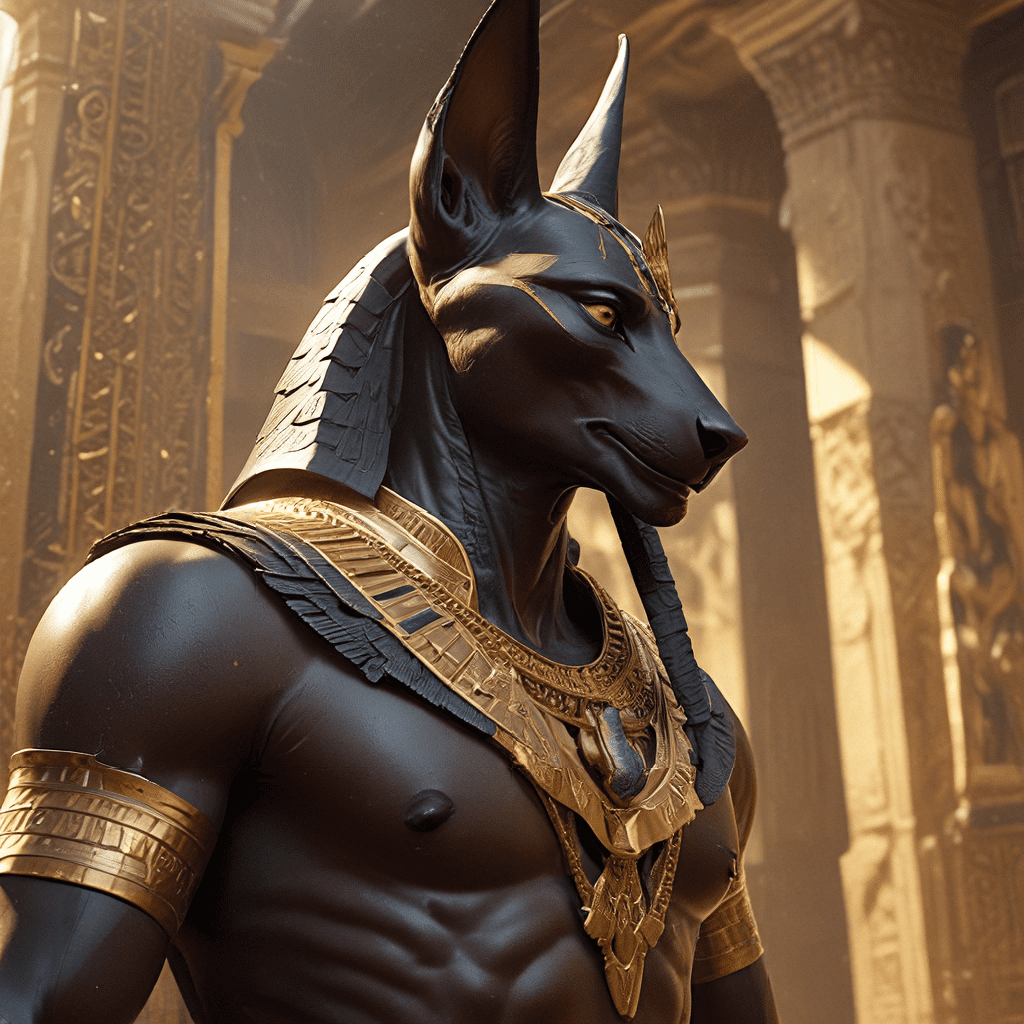Anubis: The God of the Soul
I. Introduction
Anubis is a prominent figure in ancient Egyptian mythology, revered as the god of the dead, mummification, and the afterlife. His presence is deeply woven into the fabric of Egyptian funerary practices and beliefs, making him a powerful and enduring symbol of death, transformation, and the journey to the next world. Often depicted with the head of a jackal, Anubis embodies the wild, untamed nature of death and the enduring cycle of life and rebirth.
II. Origins and Mythology
The origins of Anubis can be traced back to predynastic Egypt, where early depictions of the jackal-headed god suggest his association with the dead and funerary rituals. His connection to the jackal, a scavenger known for its presence near tombs, further solidified his role in death and the afterlife. As Egyptian civilization advanced, Anubis’s role evolved, becoming increasingly intertwined with the complex funerary practices of the time. He was seen as a protector of the dead, guiding souls through the perilous journey to the underworld.
III. Physical Appearance and Attributes
Anubis is most commonly depicted as a humanoid figure with the head of a jackal. This anthropomorphic form reflects the duality of his nature – both human and animal. The jackal’s head, with its piercing gaze and sharp teeth, symbolizes the wild and untamed nature of death, while the human body suggests his role as a mediator between the mortal and the divine. He is often seen holding the ankh, the symbol of life, the crook, a symbol of power and authority, and the flail, a symbol of justice and retribution. These attributes further highlight his multifaceted role as the guardian and judge of the dead.
IV. Role in the Afterlife
Anubis played a pivotal role in the afterlife, known as the “Weighing of the Heart” ceremony. In this ritual, the deceased’s heart was weighed against the feather of Ma’at, the goddess of truth and justice. Anubis, as the judge of the dead, presided over this crucial moment, ensuring that the scales were balanced. If the heart was found lighter than the feather, the deceased was deemed worthy of entering the afterlife. However, if the heart was heavier, it was devoured by Ammit, the “devourer of the dead,” denying the soul entry into the eternal kingdom.
V. Mummification and Funerary Practices
Anubis was inextricably linked to the mummification process, a complex ritual designed to preserve the body for the afterlife. He was believed to guide the embalmers, ensuring that the body was properly prepared for the journey to the underworld. His presence was also felt in tombs, where his image was often painted or carved on the walls, symbolizing his protection of the deceased. Funerary rituals were steeped in Anubis’s influence, reflecting the central role he played in the afterlife beliefs of the Egyptians.
VI. Relationship with Other Gods
Anubis’s role in the afterlife placed him in close proximity to other deities, particularly Osiris, the god of the underworld. He served as Osiris’s loyal servant, assisting him in the judgment of the dead and overseeing the underworld realm. His connection to Thoth, the god of knowledge and wisdom, suggests his role in guiding the souls through the trials and tribulations of the afterlife. Anubis is often depicted alongside these deities, highlighting the interconnectedness of the Egyptian pantheon and their shared role in the afterlife journey.
VII. Symbolism and Meaning
Anubis’s symbolism is multifaceted, reflecting his enduring influence on Egyptian culture. He is seen as a guide and protector of the dead, leading souls through the treacherous path to the afterlife and ensuring their safe passage. His association with death, transformation, and renewal reinforces the cyclical nature of life and rebirth in Egyptian beliefs. Anubis’s presence in tombs, rituals, and artwork serves as a constant reminder of death’s inevitability, but also the promise of a new beginning in the afterlife.




